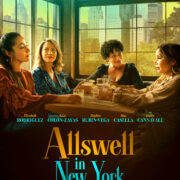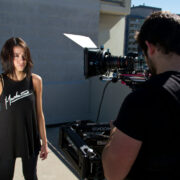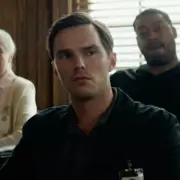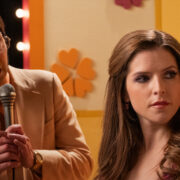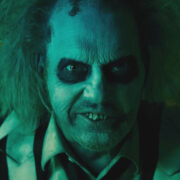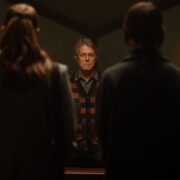THE SOUVENIR: Observing An Inevitably Doomed Relationship
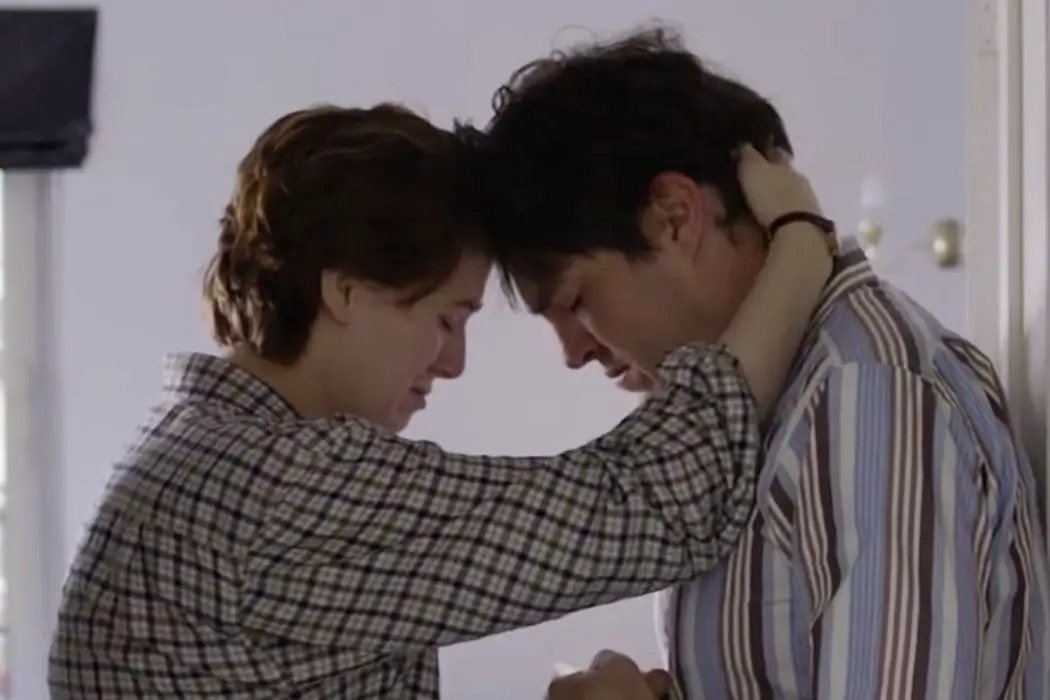
Janet is a writer based in Salt Lake City. A…
Being around a self-destructive person often makes us go down the perpetual path of addictive pain with them. It’s the good parts that make us stay around, simultaneously digging us deeper into the hole. When we look up, we feel it’s far too late to try to climb out of it. Or, we simply fail to look up that we continue to sink.
Director and writer Joanna Hogg brings a shy, intimate, and tense experience of a young woman in a troublesome and toxic relationship. It’s an examination of how naivety creates a perpetual cycle of unhealthy habits. And how class and privilege affects the way we approach relationships. Hogg shapes these perspectives with quiet and heavy introspection through her protagonist. The heaviness is probably due to the fact that this film is based on real life events from Hogg’s life.
Probably known to imbue her films with stillness and enigma, Hogg certainly instills these elements in The Souvenir with confidence. She creates a day-in-the-life portrait through unconventional techniques. Each scene is delicately intricate, yet vague. Hogg doesn’t grant us the whole picture, rather, she provides us with a fragment of one person’s life. It’s very avante-garde to say the least. And with that, The Souvenir is a film that will test the patience of many.
Some might call this boring; others will call it pretentious. While it’s very easy to perceive this film as such, the film carries authenticity and intent behind the formula. Hogg brings a film defined by memories–moments that might seem redundant and indescribable, yet they illustrate the intricacies and frustrations of the choices that we make.
Love And Other Drugs
The film follows a relationship that feels bad from the start. We know it’s bound for failure. Thus, The Souvenir isn’t about how things end but rather, how Julie experiences the relationship till its conclusion.
Julie (Honor Swinton Byrne) is a shy yet determined film student in the 80s who is in the midst of writing a feature film. She meets an older man at a party, Anthony (Tom Burke). Claiming to work for the Foreign Office, he’s very articulate, posh, and intelligent. The velvet shoes and suits that he adorns on his body presents him as a well-to-do aristocrat, but little do we know that he’s a high-functioning drug addict.
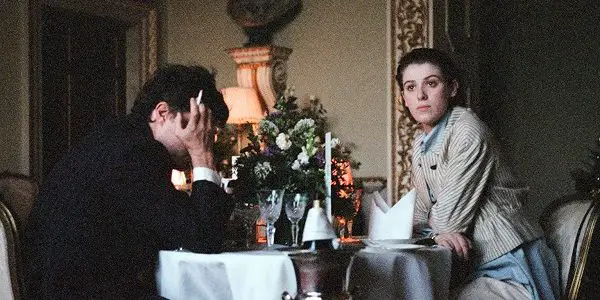
He approaches Julie with philosophy and criticism, especially when it comes to her creative visions. At first, Anthony seems to help fuel her project with the challenge and drive that it needs, but it all gradually becomes a mirror of his own self-destruction that hinders her studies.
Delving Deep Into Character Psychology à la Hogg
It’s an interesting dynamic that the two bring. Aside from the obvious age gap, one is on a constant hunt for creative drive, while the other is stagnant, filling a void with heroin. The way Julie finds out about his drug use and approaches it makes for a rather interesting character study. Not to mention, a frustratingly honest one.
There’s a scene where Julie first sees track marks on Anthony’s arms. As he nonchalantly brushes it off, Julie advises him to just leave it in hopes that it will go away eventually. Although naive Julie is still unaware of his drug use at this point in the film, it’s ultimately a reflection of the way she approaches Anthony and herself. We quickly and tragically soon witness her letting things be, with the idea that it will all eventually fizzle out and be okay. It’s both an optimistic and toxic way to think.
This isn’t your typical junkie or “good girl meets bad boy” type of drama. Hogg creates a deeply meditative and empathetic tale where we feel like we’re eavesdropping on Julie; as if we’re intruding on a private matter that makes us feel the need to look away during certain moments. This perceptive decision to focus solely on Julie’s journey gives us the benefit of examining a seemingly normal person draw out a troublesome path for herself.
Dissecting Class And Privilege – More Money, More Problems
Julie is someone who is navigating her first love while trying to navigate the challenges of being a first-time filmmaker. She’s someone who hasn’t found her voice as an artist, and it specifically permeates through the film she’s about to make. Wanting to step outside her bubble of privilege, she attempts to create a piece that’s completely foreign to her. And it’s this idea of class and upbringing being the essential anchor in her journey that Hogg intelligently explores.
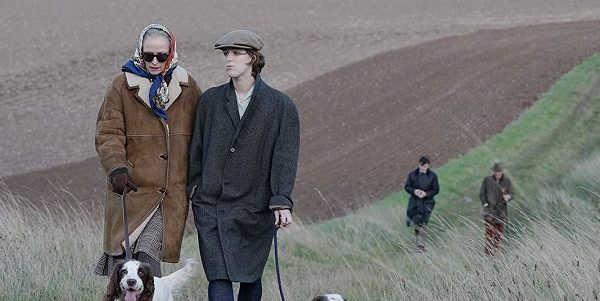
Hogg is very conscientious of the way privilege plays a part in a relationship. She doesn’t portray it in a way that pokes fun at those in the higher tier, but rather, as a way to help us see that there are more moving parts to a situation and a person.
Coming from an upper-middle class family, Julie and her parents have intellectual conversations around politics and art while having blissful walks in the countryside. She often asks her mother (Tilda Swinton, who is her mother in real life) for more money to buy film equipment when in reality, she’s running out of cash due to Anthony’s excursions. Regardless, Julie still gives Anthony money without hesitation and then spends some more on elegant trips and lunches.
The Camera, Editing And Design Frame A Grim Picture
Like how memories play out in our heads, the scenes jump from one scene to the next rather abruptly. This choppiness often throws us off a bit, or rather frustrates us. She cuts away without giving us any room to absorb and breathe. It’s ultimately a reflection of how Julie deflects her own emotions at the expense of others. Needless to say, we’re thrown on an anxious ride.
Hogg paradoxically decorates the anxiety with beautiful and thoughtful production design. Using still camera shots, she frames her characters and sets in a shattered and dense light. By setting her camera in one place, she allows us to feel like we’re dropping in and observing; as if they’re an artwork at a museum and we’re inquisitively examining the scene, trying to flesh out any traces that will give us the bigger picture.
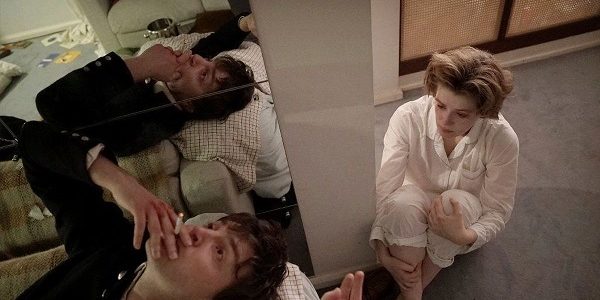
One particular staging technique that Hogg ingeniously implements is the use of mirrors. She is innovative when it comes to incorporating mirrors in her shots to frame simmering anxiety and pain. Not only does it create more depth, but we get the sense that there is definitely more than meets the eye. There’s inexplicable feelings are floating. Especially during the scene when they’re in a posh hotel room in Venice, it’s a combination of Julie’s realizations along with Anthony’s unpleasant (and often demeaning) sensibility that takes a quiet and alarming turn.
The Souvenir: Conclusion
Honor Swinton Byrne brings us a tragic and wonderful performance in her debut performance. She carries the silent intricacies of Julie with mature sensibilities, unveiling an experience that we empathize in. And it’s no surprise considering that her mom is one of today’s greatest actresses. Burke also gives an equally commendable performance as an off-putting and jaded Anthony who quite often takes advantage of Julie’s trust.
Building characters who are enigmas, Hogg meditatively reveals fragments of Julie’s experience that both frustrate and astonish us. Overall, she creates an honest depiction of a naive young woman who takes on far more than she’s capable of.
There’s definitely more to explore, which is why The Souvenir: Part II is on its way. Perhaps we’ll get to see how Julie changes from this tumultuous relationship as a person and artist. I’m particularly interested in how Julie’s film project evolves as a result of her experience. And hopefully, we’ll get a chance to explore Anthony–who he was and the life that he lived.
Have you watched The Souvenir? What do you hope to see in Part 2? Let us know in the comments!
The Souvenir was released in theaters in the US on May, 17 2019. It will be released in the UK on August 30, 2019. For all international release dates, see here.
Does content like this matter to you?
Become a Member and support film journalism. Unlock access to all of Film Inquiry`s great articles. Join a community of like-minded readers who are passionate about cinema - get access to our private members Network, give back to independent filmmakers, and more.
Janet is a writer based in Salt Lake City. A strong advocate for underrepresented voices, she believes cinema is a transformative medium that challenges assumptions and creates diverse conversations.




